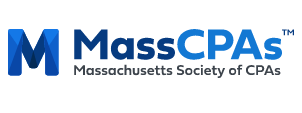Tax season can be the most grueling time of year for practitioners so having the ability to prepare a client tax return efficiently and accurately will help you minimize extra time during the busy season.

Tax season can be the most grueling time of year for practitioners so having the ability to prepare a client tax return efficiently and accurately will help you minimize extra time during the busy season.
Many business owners do not understand the impact that their accounting records have on the success of their business as well as your success at tax time.
However, the simplicity of QuickBooks can cause their accounting records to be changed, altered, setup incorrectly, mistakes with bank reconciliations, account posting choices, negative accounts receivable, and so much more.
We will focus on a proactive approach to working with clients to minimize these mistakes and to allow for a successful and healthy set of financials that will help backup the tax return and any other financial reporting requirements that the business must adhere to.
Tax time can also be extra grueling because your firm lacks processes when onboarding new clients. Just as much as your existing clients need you to be proactive, so do any new clients that walk in the door. We will cover how you can onboard new clients and not have it disrupt your busy season but rather make it the most successful season you have ever had.
This event may be a rebroadcast of a live event and the instructor will be available to answer your questions during the event.
Highlights:
The major topics that will be covered in this class include:
How to spot common mistakes in your client’s QuickBooks and how to fix them.
Beginning Balances:
Understand how to correctly enter the beginning balances for a new data file. Cash Position/Bank Reconciliations - Learn about balance sheet accounts that need to be reconciled in the data file including tips and trips for non-bank accounts.
Undeposited Funds and Receiving Payments:
Learn about the function of Undeposited Funds and how QuickBooks will report payments that are and are not applied to invoices.
Inventory:
Understand the basics of how inventory is handled properly, the reports to pull for various informational purposes, and how to make inventory adjustments.
Accounts Receivable and Accounts Payable:
Learn how to manage the negative A/R and A/P as well as how to fix a cash basis balance sheet that has A/R and A/P reported.
Credit Cards:
Learn the importance of setting up credit cards, bank feeds, and setting up rules for easier data entry.
Sales Tax:
Learn the basics about Sales Tax in QuickBooks, how to make adjustments, and how to verify that the sales tax return is filed correctly.
Payroll Tax:
Understand how to set up payroll tax liability payments and how to ensure timely quarterly reporting when using a DIY QuickBooks solution
The 1099 Tracking System - Learn best practices for tracking 1099s all year long to ensure a smooth January filing season.
Key Practice Workflow Tips you can incorporate into your firm so your client onboarding during tax time is a breeze. Learn how to create standard onboarding procedures for new clients in order to keep your firm moving along including the use of technology, standard procedures, data management, and workflow.
The Massachusetts Society of Certified Public Accountants is the state’s premiere professional organization with more than 11,000 members in public accounting, industry and business, government and education.
© 2025 coursetakers.com All Rights Reserved. Terms and Conditions of use | Privacy Policy